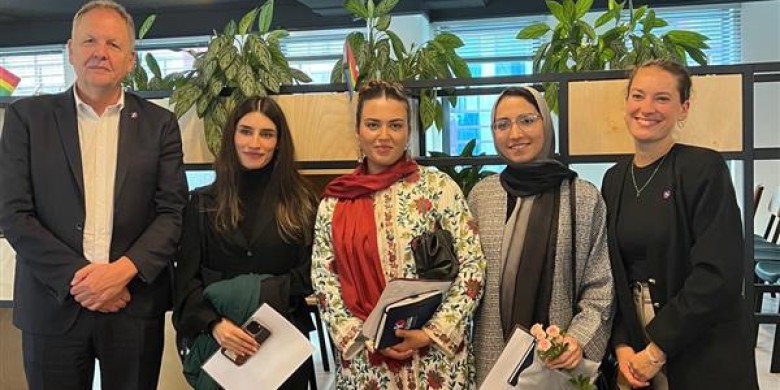
Elevating Afghan Voices in International Policy Domains Introducing the 2025 Afghan Youth Representative to the United Nations
We are pleased to introduce Aziza Akrami as the next Afghan Youth Representative to the United Nations 2025!
Aziza Akrami carries the hopes of a generation, prepared to amplify the voices of youth, especially women and girls, while advocating for greater opportunities, access to education, and meaningful inclusion of Afghan youth on the global stage. This unique opportunity allows Afghan voices to be heard, shedding light on the lived experiences of the youth since the collapse of the former Afghan government in 2021.
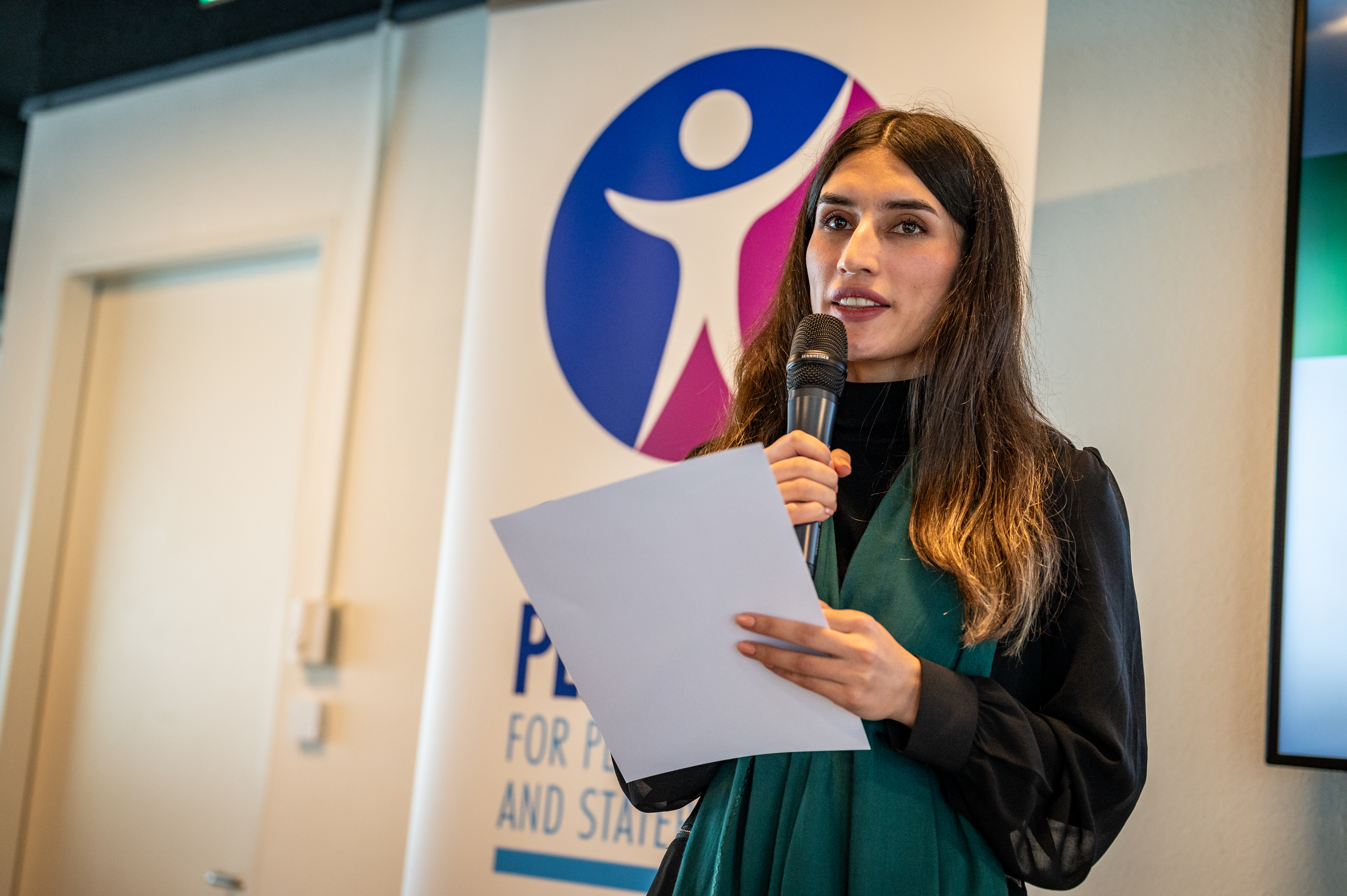
On the 11th of September, Afghans for Progressive Thinking (APT), with the support of the Civil Society Platform for Peacebuilding and Statebuilding (CSPPS), held an extraordinary event for the relaunch of the fifth cycle of the Afghan Youth Representative to the UN (AYR-UN) programme.
The AYR-UN program, in line with UN Security Council Resolution 2250 (2015) on Youth, Peace, and Security, provides a platform for one young Afghan each year to represent their generation, especially women and girls whose rights to education, employment, and civic participation have been severely restricted.
The final selection round between the three Afghan Youth Representatives took place in The Hague, the Netherlands. The selected finalists were Aziza Akrami, Wazhma Rahmani, and Fatima Frotan. You can find more information on the panel of judges in the box and on the candidates in their biographies below.
Empowering young Afghan men and women to advocate for their rights is a pressing challenge to create change in Afghanistan. To make sure future generations will have a voice and an opportunity to build a peaceful and inclusive society, they need to be heard and supported by the international community. This extraordinary event represents a cornerstone amplifying the international attention they need to uphold their rights.
APT is a youth-led nonprofit organisation in Afghanistan. Since 2010, they have been actively addressing human rights issues, with a particular focus on women’s rights, while promoting girls’ access to education through creative and impactful initiatives. More information on them can be found here: www.aptyouth.org
The Civil Society Platform for Peacebuilding and Statebuilding (CSPPS) is supporting Aziza Akrami in the next steps of this crucial journey, and hopes that Afghan voices will be heard and the urgency of the situation recognised.
In case you missed the final round, you can find more information here
- Facebook: https://fb.watch/C7WVMkicnb/
- LinkedIn - AYR-UN
Biographies
Aziza Akrami 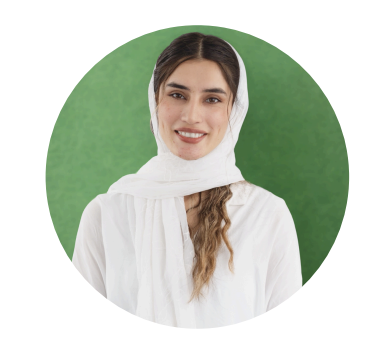
Aziza Akrami is an Afghan social entrepreneur and humanitarian leader empowering women, children, and refugees through healthcare, education, justice, and equal opportunity
She is a proud Ambassador for McKinsey’s 2025 Forward Program, and the Co-Founder and Program Director of Empowered Circle, an initiative launched in 2021 that has provided healthcare and health education to more than 8,000 women and children in underserved communities across Afghanistan.
With over six years of experience in humanitarian advocacy, fundraising, and program management, Aziza has led and supported numerous projects and campaigns in Afghanistan, Europe, and the United States. She has worked with multiple organizations that include: The Collective Aid Charitable Foundation, Blossom Hill Foundation, Right to Learn Afghanistan, ASEEL, and Norwegian Church Aid. Through these collaborations, Aziza has helped raise over USD 500,000 to deliver life-saving healthcare, educational opportunities, and climate emergency support to thousands of vulnerable individuals and crisis affected communities. Aziza holds an MBA from Porto Business School, specializing in Sustainability and Innovation (2024), and a Bachelor's degree in Management Information Systems from Kabul University (2021). She was awarded first place at the South Asian Students Meet as part of the World Bank research competition. Her paper “Women Between Conflict and Climate Crisis,” was later published by Monash University in Australia.
Aziza believes that every Afghan individual, regardless of background, gender, or ethnicity, deserves to live with dignity, equality, and hope. She is passionate about using her voice and lived experience to advocate for youth inclusion, human rights, and the rights of displaced people groups.
Wazhma Rahmani 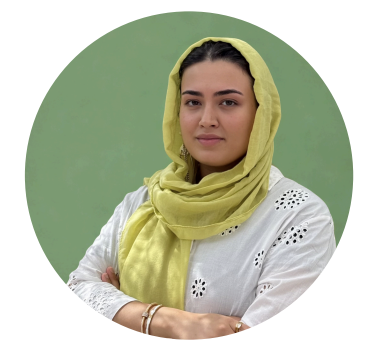
Wazhma is a Master’s student in Global Affairs and holds a Bachelor’s degree in Political Science. Born and raised in Afghanistan, she became a refugee shortly before the fall of the Afghan Republic and later immigrated to Canada. Her lived experience as a refugee informs her deep commitment to human rights, particularly women’s rights, refugee protection, national security, and the law of armed conflict.
Growing up in a conflict-affected country and later navigating life in exile shaped her understanding of violence and injustice. These experiences sparked her drive to explore why people instigate violence, why societies tolerate it, and how human rights and security intersect in fragile states like Afghanistan.
Her advocacy spans multiple borders and communities. In Kabul, she worked with women entrepreneurs to promote economic empowerment. In Canada, she worked with immigrant women to support their integration and advancement. She also works with Afghan girls banned from school, helping deliver online education in the face of systemic repression.
Currently, she is a member of the Council of Young Feminists at the Canadian Council of Young Feminists and serves as a policy analyst in a student-led initiative at the University of Toronto, developing policy solutions for fragile and conflict-affected states. From war zones to classrooms, her journey has shaped her into a leader who believes in inclusion, accountability, and the power of grassroots action. She champions the idea that real change begins with those closest to the problem.
Fatima Frotan 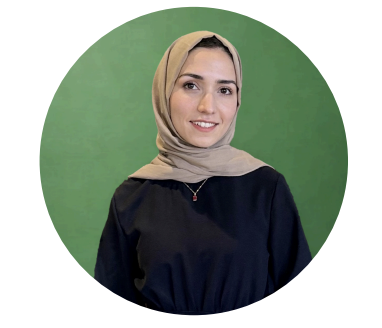
Before the Taliban returned to power in 2021, Fatima Frotan was living in Kabul, where she was studying a Master of Business Administration (MBA) and working as a Gender Analyst in the policy and legislation sector. Earlier, while completing her undergraduate degree in Politics, Philosophy, and Economics (PPE), she co-led a peer education project focused on women’s empowerment, building peer networks, and supporting girls’ leadership. She also began assisting female high school graduates in applying for international scholarships, a role she still continues remotely.
Her studies and career were interrupted by the regime change, but she was fortunate to leave with her family, find safety in Australia, and recently complete a Master of Public Policy (MPP) at Monash University.
Fatima now works in policy and advocacy, focusing on inclusive service delivery in the legal sector, particularly for migrant and refugee communities navigating language, legal, and cultural barriers. Her work includes contributing to youth-inclusive initiatives, mentoring newly arrived Afghan youth, and supporting the development of inclusive policies that reflect intersectional needs.
She also co-leads a personal initiative aimed at helping several Afghan girls continue their education in a neighbouring country, though this work is currently on hold due to safety concerns.
Fatima applied for the Afghan Youth Representative role with deep awareness that many Afghan youth, especially those still inside the country, could not. That reality grounds her commitment to reflect their complex and diverse experiences without reducing them to a single narrative.
Panel of Judges :
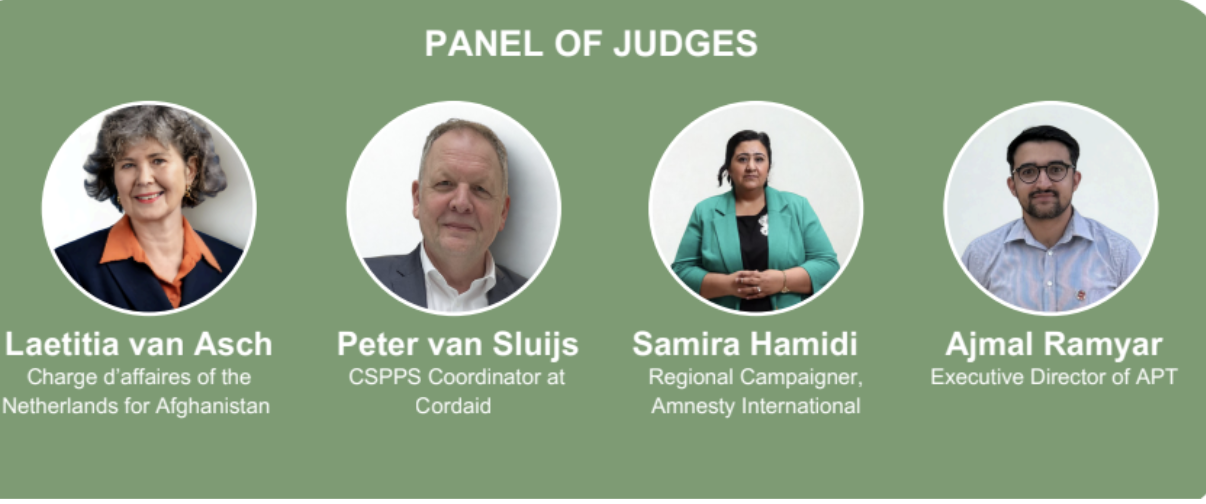
"What we have right now, what is left for us is our voices"
